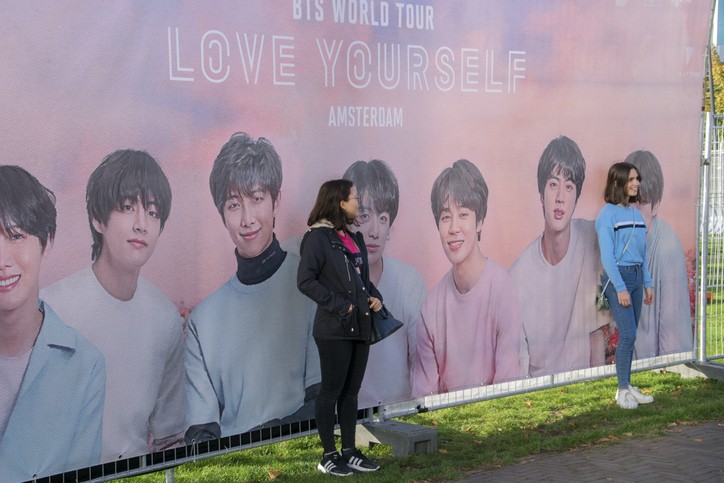I’ve been lucky enough to have been ‘brought up’ in a company that values ‘values’. For as long as I can remember (and I’ve just notched up 16 years with Wellmark!), our values have been part of our internal vocabulary. It’s not unusual for them to feature in day-to-day conversation, particularly when we’re assessing recruitment and new business opportunities.
I was taught by Wellmark’s founders to lean on our company’s values when making hard decisions, to use them as a line in the sand when boundaries were unclear, and to let them be a soft place to land (so I could rise from any fall).
In a small agency with a loyal team that often resembles a family, it’s easy to see how values could play a meaningful role. But does it transpose to larger organisations and the brands they create?
As a brand strategist, I spend a lot of time workshopping the ‘substance’ of a brand with company stakeholders. I find that clients are often surprised by how hard I push them to ‘go deep’ and ‘be authentic’ when we work together to articulate their brand values.
And truth be told, I have never been a fan of the clichéd values adopted by so many corporate brands. Nothing screams lip service more than a vacuous list of 4–5 (admittedly well-intentioned) words like innovation, excellence, respect, integrity, collaboration.
Harsh? Maybe. But these kinds of words actually do a piss-weak job of distinguishing a company’s unique beliefs and behaviours from those of any other company. Are these not qualities exhibited by practically every successful company? And how does a list of words in isolation without context or elaboration say anything of meaning? Or say anything distinctive about the brand that audiences will interact with?
I’ll come back to this point but for a moment let me digress (wildly).

My first exposure to the now massively famous K-pop group, BTS, was a performance they gave on The Graham Norton Show. After they performed their hit song ‘IDOL’, they were asked what message they were trying to send to their army of fans through their new album (the now iconic 2018 LOVE YOURSELF結 ‘Answer’).
The group’s leader, RM, replied:
“Life always has its dilemmas, and we have to have the pain inside because when the light comes, we always have shadows and we cannot avoid that. So I just wanted to tell that we should find the way to love ourselves. Especially the youth, we can be more happy and we can live a good life.”
[FYI, English is RM’s second language so while his delivery wasn’t polished, I’m sure you can appreciate the intent of his words.]
Given it was a Friday night, I may have had a couple of glasses of wine in me, but I remember being fascinated and strangely uplifted by this group of seven young men telling me and their legion of fans around the world that the answer was to love ourselves. Whoopi Goldberg, who was also a guest on the show, literally gave the shirt off her back (one she had personally designed) to the group to thank them for the joy they were bringing to so many people. (You can view the exchange here.)
What I didn’t know at the time was that one month prior, RM had delivered an influential speech to the United Nations General Assembly, to help launch a new initiative focused on youth. With the rest of his bangtan* group members standing beside him, RM explained to the General Assembly that to truly love yourself, you must do so despite, and because of, your flaws.
“Maybe I made a mistake yesterday, but yesterday’s me is still me. I am who I am today, with all my faults. Tomorrow I might be a tiny bit wiser, and that’s me, too. These faults and mistakes are what I am, making up the brightest stars in the constellation of my life. I have come to love myself for who I was, who I am, and who I hope to become.”
The idea that wherever there is light, there are shadows – that life’s brightest moments cannot exist without its darkest – has echoed throughout the group’s music ever since. During the pandemic, they released a slew of happy hits to lift us out of the doldrums, including Permission to Dance, Dynamite and Butter (the latter two earning them US Grammy nominations). Other songs like Life Goes On and Blue & Grey acknowledged and empathised with the hardship people were collectively experiencing.
It has been said that no music artists in the world did more for their fans during the pandemic than BTS. Beyond hit singles, they delivered variety TV shows and virtual concerts to continue interacting with fans during long, repressive lockdowns – shining a light despite the dark shadow cast by the virus. This is a brand living its values.
Pop music aside, what do brand values offer to a company? As someone who has worked in this area for a long time, my observation is that it really depends on how these values are treated. Where I see them work best is when a company really invests in understanding what matters to them, articulates this in a meaningful way, and then takes the time to embed these beliefs and philosophies among their team.
As a business owner, I like to think of our brand values as guide posts. As long as I stay within their bounds, I won’t ever stray from what’s important – in good times and in bad (the pandemic being a classic example of the latter). I also like to think of them as beacons – signalling to customers and other important stakeholders what a company stands for and puts first, no matter what.
So next time you are asked to develop or review your company’s brand values, my best advice is to take this opportunity to have a truly authentic discussion about what matters to your people as they go about the business of doing business. By going deep, by working hard to uncover the real substance underpinning your brand, you’ll ensure your values actually deliver value.

Interested in Wellmark’s values? When it comes to what matters to us, we could have just written a standard set of corporate values. Instead, we decided to package them in a way that was more meaningful to us, drawing inspiration from the Hippocratic oath – the values we subscribed to back when some of us were practising clinicians. You can read Wellmark’s version of the oath here.
*The group’s name, BTS, stands for the Korean phrase Bangtan Sonyeondan, meaning “Bulletproof Boy Scouts”. They chose bangtan – literally “resistant to bullets” – because they felt it encapsulates their mission of deflecting the unhealthy stereotypes and unrealistic expectations they feel are so often aimed, like bullets, at young people.